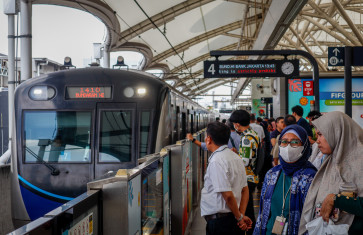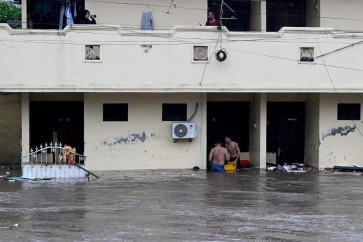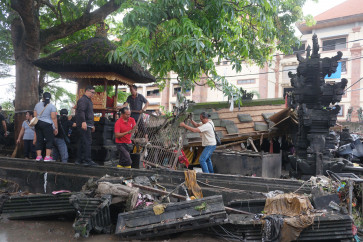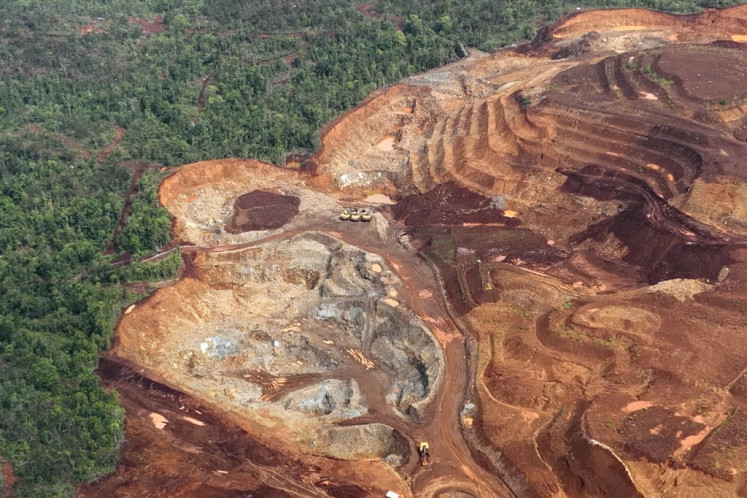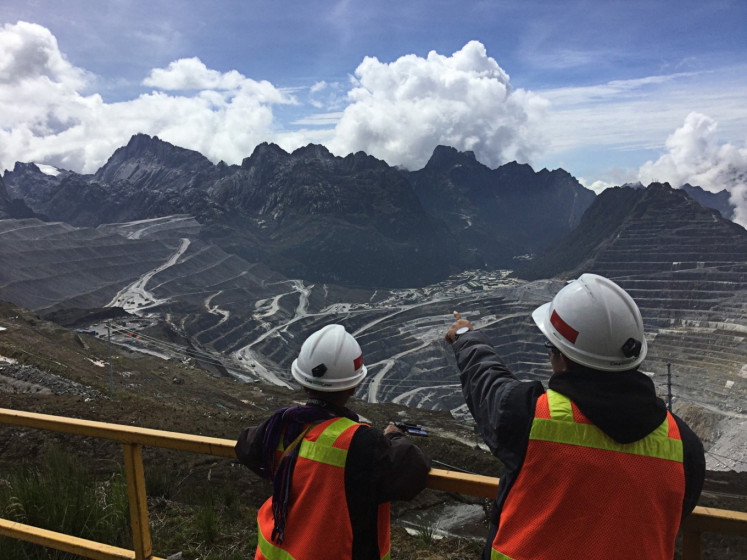Popular Reads
Top Results
Can't find what you're looking for?
View all search resultsPopular Reads
Top Results
Can't find what you're looking for?
View all search resultsBPS expects 2016 economic census to wrap up by mid-year
The Central Statistics Agency (BPS) will hold its decade economic census throughout May 2016, expecting to yield a better understanding of the countryâs economic landscape
Change text size
Gift Premium Articles
to Anyone
T
he Central Statistics Agency (BPS) will hold its decade economic census throughout May 2016, expecting to yield a better understanding of the country's economic landscape.
The statistics bureau estimates that around 6 million businesses will have been set up between 2006 and 2016, from 22.7 million to 29 million businesses, mostly in trade and services.
'That will include e-commerce, which we could only estimate at this time,' BPS deputy for distribution and service Sasmito Hadi Wibowo said at a press conference for the 2016 economic census, expecting the results by the middle of the year.
Data from past economic censuses said there were 16.4 million businesses in 1996 and 9.3 million in 1986, all excluding agriculture, pointing to a steady 6 to 7 million business increase every decade.
The business sectors covered in the survey were mining, processing, power plants, services, construction, trade, logistics, transportation, tourism, telecommunications, finance, insurance, property, education, health, social and entertainment, among others.
Sasmito said the census was also crucial to assess the economic cycle of the country.
'In 1986, we enjoyed good GDP [gross domestic product] growth thanks to oil revenue. We suffered from low GDP after the 1998 monetary crisis but it slowly hiked passing through 2006 and the peak was in the beginning of 2011, where we saw growth of around 6 percent. However, it slowed again until now,' he explained.
He calls the now seemingly stagnant growth in the country a 'middle income trap'. 'Not every developing country can become a developed country so we have to carry out many reforms,' Sasmito went on.
'Indonesia depends too much on raw material exports, such as rubber, palm oil and cacao. We need to have more industry processing them to be ready to use products so we want to know now how far we have progressed,' he said, expressing hope that this decade's census would see improved manufacturing or processing industry conditions.
The census, which will be done in 82,000 villages and subdistricts, is also expected to help map business potentials, employment rate, characteristics, prices, productivity, distribution channels and business size in each region of the archipelago. It will take up to Rp 2.4 trillion (US$173 million) from the state budget, 70 percent of which is spent on recruitment and training for surveyors.
The BPS will deploy around 300,000 part-time surveyors to come by homes and businesses spread in 800,000 spots across the country to ask 10-minute questions.
'With the census, people will receive more accurate data on the number of businesses available, their types, productivity, manpower use, revenue and costs. They can determine their competitive advantage, weaknesses, opportunities and challenges,' Sasmito said, expecting the census to be beneficial for both the government and private institutions in creating development strategies for the country's economy.
Nita Yudi, chairman of the Indonesian Businesswomen Association (IWAPI) said that the BPS' economic census had been useful for the local economy, therefore all businesspeople were expected to cooperate by giving accurate answers. (rbk)


